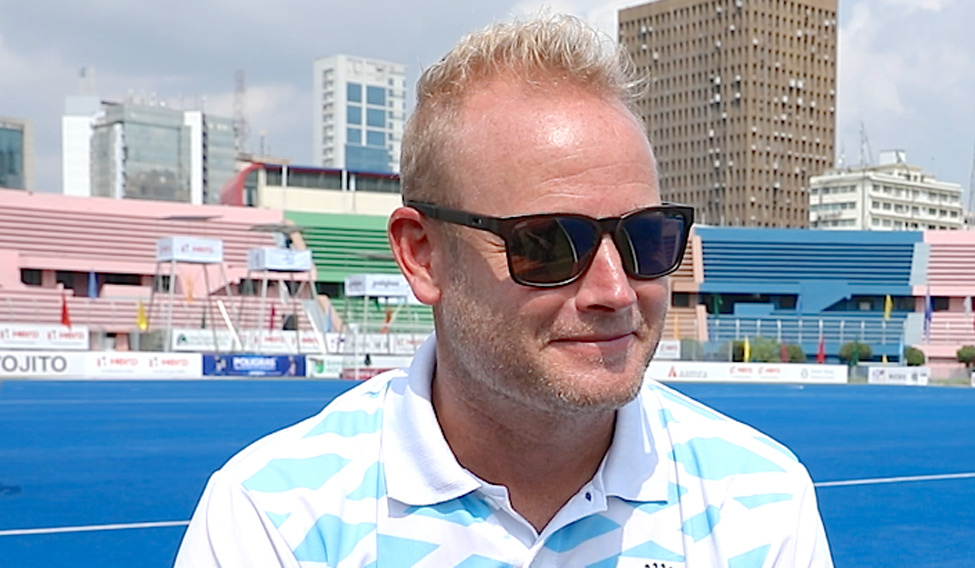Sjoerd Marijne was upset. The India men's hockey coach paced up and down at the Maulana Bhashani hockey stadium, waiting for the floodlights to turn on. Dusk was gathering, and the Indian team still had 30 minutes of training left. There wouldn’t have been any need for the floodlights if the team had reached the stadium on time. The Indian team hotel was situated a kilometre away, but what should have been a five minute transit took approximately 35 minutes—courtesy the dense traffic in the concrete jungle. Toyota cars (Dhaka loves its Toyota) sped past; buses, rickshaws, cycles, bikes, and carts all crawled along the extreme right of the traffic lane.
Why not walk to the stadium then? The pollution was thick as a blanket. On Monday night, the team had attended an official dinner. On Tuesday, they marked their presence in an official reception hosted by the Indian High Commission; travelling back and forth took an hour each, followed by a 35-minute slog to the arena. “I completely understand that, as a national team, we have to attend functions,” the Dutchman said. “But we are here to win the Asia Cup, and the traffic is not helping us at all.”
His mood significantly improved when the lights came back on, and the players arrived. There was a smile on his face as he watched the players score, and the goalkeeper pull off a few spectacular saves. A certain rhythm was established in the sessions. As the play progressed, Marijne’s earlier dark mood evaporated, and he spoke about the Indian team and their form, ahead of the match against South Korea in the Super 4.
There were critics when his name was announced as the national coach. At that point, Marijne was in Europe as the head coach of the Indian women’s team. Understandably, many in the hockey fraternity (and outside) raised their eyebrows when they heard the decision. Roelant Oltmans, an established name in coaching, was being sacked and a relative unknown, who had previously coached a junior Dutch side, was being brought in. Even Marijne probably understood his inexperience when he answered in affirmative to the offer from Hockey India. Only results and trophies could change their views.
At the Asia Cup, his first assignment, there is an undeniable pressure to win. It is also a championship that the Indian team last won in 2007, a decade ago. A win would come as a shot in the arm, not just for the morale of the national team, but also for Marijne as a coach. The sooner he establishes his credentials, the better.
Marijne is just three-matches old. But a difference is already palpable in the team's style of play. The pace and speed of the team had gone up; in the first quarter of the match against Pakistan, the team played a game of first touch hockey. Even though the structure broke down temporarily in the third and fourth quarter, India won the game 3-1.
“Yes, I am asking them to release the ball early. I only want one touch unless there is a situation that asks more from a player,” said Marijne. “Against Pakistan, the ball speed was less and they were hanging on to the ball. That is not done.”
India’s vice captain S.V. Sunil explained Marijne’s theory: It is a style mostly adhered to by Australian and Dutch players. Recently, Holland played India at the HWL in London, winning 3-1; the match was played at breakneck speed. On occasions, Holland reached the Indian striking circle with just 5-6 passes. A similar pattern is being chalked out for India.
On the plus side, India seem to be the fittest side in this Asia Cup, capable of adapting to the physical rigour that the technique demanded.
“But we need to be realistic at the end of the day,” said Marijne. “If we are ranked higher than an opponent, we need to win the match. We are the favourites here, so we need to live up to the billing.”
According to Marijne, there should be no preoccupation with the tag of favourites. “The boys need to focus on themselves,” he said. “The teams are here to win and so are we. But we need to follow a process and strategise our game.”
The coach took inputs from the players, said Sunil. “He asks us about what we want and that helps, as we are able to discuss and implement something that we feel will help the team in a match.”
When Marijne speaks about basic skills, he is careful to point out that it was not all about dribbling. “Receiving, passing and the mindset of the players are as important,” he said. “I think in the Super 4 [which begins with a match against South Korea], we will perform much better.”
India will face Korea, Malaysia and Pakistan in the Super 4; a victory in two matches will be enough to ensure a place in the final.
For the coach, success is an obsession. “I am a fanatic in that regard,” said Marijne. “I just want to win. Be it a pool match or the finals, a win is essential for me. That is the way I look at games.”
India is presently ranked sixth; anything upwards would be a tremendous gain for India and Sjoerd Marijne. But the stress and pressure points would come when the medals are counted at the end of the season; not just from Asia, but also from the World Cup and the Olympics. As a challenge, it can’t get any better for Marijne. As an opportunity, all he needs to do is embrace it.






